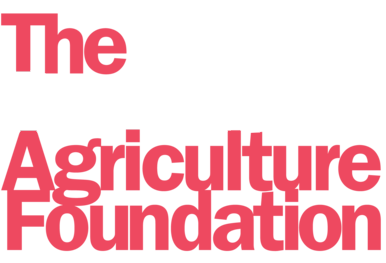The Stress of Seeding
“You have got to triple check everything to make sure you don’t make any mistakes because if you do it could cost you your whole year”
stress
stres/
noun
1. pressure or tension exerted on a material object.
2. a state of mental or emotional strain or tension resulting from adverse or very demanding circumstances.
seeding
adjective
1. planting seeds in a place
2. clenched jaws, back pains, little sleep, long days
3. where it all begins
What a wild time of year this has been! Ripe with excitement and hope! Oozing with optimism and hard work, it’s seeding time! This can be a particularly high stress and intense time of year and tends to bring out the best and the worst of us.
Stress often gets a bad rep. We see it as our body fighting against us, when really stress is essential for survival. The body is flooded with stress hormones in preparation for us to face danger. Amidst this process there is a very important factor that goes unnoticed and unacknowledged. Fear. A stressful situation — whether something environmental, such as a looming work deadline, or psychological, such as persistent worry about losing a job — can trigger an experience of fear and a cascade of stress hormones that produce well-orchestrated physiological changes.
This combination of reactions to stress is also known as the "fight-or-flight" response because it evolved as a survival mechanism, enabling people and other mammals to react quickly to life-threatening situations. The carefully orchestrated yet near-instantaneous sequence of hormonal changes and physiological responses helps someone to fight the threat off or flee to safety. The body can also overreact to stressors that are not life-threatening, such as traffic jams, work pressure, and family difficulties. How do we intercept the cycle?
When we have more resources, we are less impacted by stress.
There are many ways that we can combat stress but today we are going to highlight two that have ample research backing their effectiveness.
STEP ONE
KNOW THE SIGNS OF STRESS
“Know thyself.”
― Socrates
What happens when we get stressed? Everyone is different and has a unique way that they respond to stress. Some people get sweaty, furrow their brow, clench their jaw, have a more rapid heart rate, eat, don’t eat, find themselves more irritable, have trouble sleeping, struggle with memory, have trouble focusing, and the list goes on. Some longer term health problems that can be caused or exacerbated by stress are:
Depression and anxiety
Pain of any kind
Sleep problems
Autoimmune diseases
Digestive problems
Skin conditions, such as eczema
Heart disease
Weight problems
Thinking and memory problems
One of the best things that we can do to combat the long term impact of stress is to know our stress signals. For this exercise, we will focus on negative stress, defining negative stress as: stress which negatively impacts our quality of life. When you are faced with negative stress, what happens and what do you do about it?
STEP TWO
CREATE AN ACTION PLAN
“Be kind, for everyone you meet is fighting a hard battle.”
― Socrates
Most of us probably know what our stress signals are. If you are unsure then go ask your husband/wife, or someone close to you. Rather than waiting for the long term effects of stress to start exposing themselves, you can start with preventative measures now. We learn to manage our stress by first knowing when it shows up. Grab a pen and paper or just take a mental inventory of what three of your stress signals are. Some examples may include irritability, struggle focusing and perspiration.
Tell someone in your life about your stress signals and give them permission to ask you if you are stressed when they notice these signals.
When a signal arises and you are on your own take it as a sign to check in and take a deep breath.
Remember that stress is a natural part of your biology and there is no need to feel embarrassed or shameful about feeling stress.
Stress is an important part of life and a really great teacher. Things may not get easier, but we can grow and maintain our resiliency. The more insight we have on the inner workings of our mental health, the better we can be at maintaining our vitality and in turn our relationships and responsibilities.

